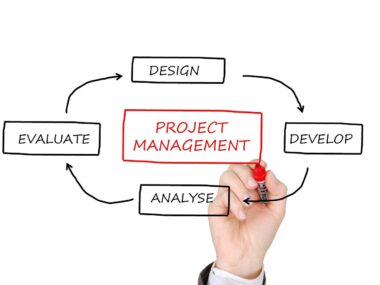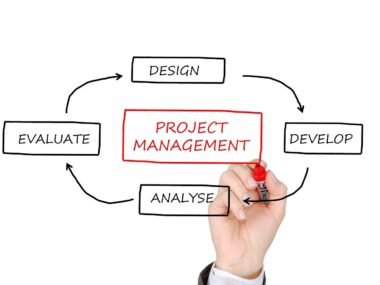Training Significance for PMO Teams
In today’s competitive market, effective training programs for Project Management Office (PMO) staff are vital. These programs enhance skills in managing projects, improving workflows, and ensuring compliance with industry standards. Organizations often face unique challenges that require tailored training solutions. Developing a well-structured training plan not only increases employees’ capabilities but also their job motivation. Moreover, a skilled PMO staff improves project delivery rates and reduces costs. Training programs typically focus on various aspects such as risk management, project planning, and stakeholder engagement. To ensure the training effectiveness, organizations should assess training needs through surveys and interviews. Also, evaluating the impact of training on project outcomes is essential. Vendors should provide updated training materials that reflect current industry trends. Build a community within the organization to encourage knowledge sharing among PMO staff. Performance metrics such as successful project completions should be linked to training efforts. Thus, a strong PMO training program remains vital for enhancing project success and achieving overall organizational goals.
Core Skills for PMO Staff
Training and development programs for PMO staff should target core competencies essential for project management. Staff members must excel in communication, leadership, and negotiation skills to effectively manage teams and stakeholders. They should also learn how to use project management tools and software efficiently. Another crucial skill includes financial management, enabling PMO staff to track budgets and optimize costs. Our training initiatives also emphasize critical thinking and problem-solving capabilities. These skills help staff resolve issues promptly, minimizing project delays. Additional training areas encompass methodologies, including Agile and Waterfall, which cater to various project requirements. Implementing blended learning approaches combines traditional classroom sessions with digital training modules, facilitating diverse learning preferences. Practical workshops can further enhance these program offerings. PMO staff should participate in simulations of project scenarios to gain hands-on experience. Assessment tools can provide feedback on individual and team performance after training sessions. Evaluating training impact over time enhances program quality and supports continuous improvement. Addressing these core skills ensures that PMO staff can effectively contribute to project success.
Creating customized training content is crucial for PMO staff development, considering the unique challenges each organization faces. Training should be tailored to align with specific organizational goals, industry standards, and project requirements. An effective training program must involve collaboration between stakeholders, including project managers, operational teams, and HR personnel. By involving various perspectives, training programs can be designed to address actual skill gaps while being relevant to the PMO’s mission. In addition, using real-world scenarios in training fosters a better understanding of practical applications. Including case studies can help bridge theory and practice, showing staff how concepts apply to their projects. Moreover, creating an ongoing training and support system can reinforce learning, leading to long-term retention of skills. Mentoring and peer support systems can also play a vital role in staff development, boosting confidence and competency. Our organizations should incorporate diverse evaluation methods to ensure the success of training programs, such as surveys and follow-ups. Regularly updating training materials to adapt to industry changes ensures the continued relevance of PMO staff capabilities.
Utilizing Technology in PMO Training
Technology’s role in PMO training has become increasingly significant, especially as remote work culture expands. Digital tools can enhance learning experiences through interactive platforms like webinars and online courses. Many PMOs now leverage Learning Management Systems (LMS) to organize training content and track employee progress efficiently. Utilizing technology allows for the integration of multimedia resources, such as videos and interactive quizzes, to cater to varying learning styles. Additionally, collaborative digital platforms can facilitate knowledge sharing and team engagement beyond traditional settings. Technology-based training programs can foster a sense of community among PMO staff, allowing for networking opportunities and peer support. On-demand access to resources ensures that team members can engage with content at their convenience, thus promoting continuous learning. Moreover, app-based training solutions can provide bite-sized learning opportunities that fit the demanding schedules of PMO staff. Companies should ensure that their technological tools are user-friendly and accessible to maximize participation. Ultimately, integrating technology into PMO training can significantly boost the effectiveness and reach of development programs.
Feedback mechanisms are essential for improving training programs geared towards PMO staff. Regularly gathering feedback from participants helps identify areas requiring modification or enhancement. Surveys following training sessions can provide insights into the effectiveness of content and delivery methods. Incorporating participant feedback into training design fosters a sense of ownership and engagement among staff. Organizations may also find value in hosting focus groups for more in-depth discussions on training effectiveness. Continuous improvement practices should be a priority when evaluating training outcomes. Additionally, tracking metrics such as project performance post-training can highlight the direct impact of these programs. Empowering PMO staff to actively participate in refining training programs helps ensure alignment with their actual needs. A structured approach to implementation can help organizations identify successes and areas needing further development. Moreover, establishing a training review cycle can maintain the relevance of programs as the industry evolves. Fostering an environment of open dialogue allows PMOs to adapt rapidly to new challenges through improved training initiatives.
Long-term Development Strategies
Long-term development strategies can shape successful training programs for PMO staff by embedding continual learning culture within organizations. Begin by establishing clear career pathways within the PMO, enabling staff to perceive how training aligns with their professional growth. Organizations should offer tailored training resources, mentorship programs, and opportunities for career advancement. Encouraging the pursuit of certifications can also inspire commitment to employee development. Additional trainings may include leadership programs aimed at preparing future PMO leaders. Creating a balance between formal training and experiential learning opportunities supports personal and professional growth. Evaluating staff performance regularly fosters transparency regarding progress and development needs. Building an adaptable training model encourages PMOs to stay aligned with industry trends while embedding best practices into current processes. Investing in coaching and mentoring further allows staff to develop soft skills critical for effective project management. PMOs should recognize and reward achievements resulting from successful training initiatives, reinforcing their commitment to employee development. A strong focus on long-term strategies will effectively enhance employee loyalty and ensure project management excellence.
In summary, training and development programs are crucial for PMO staff, enabling them to navigate the complexities of project management successfully. These initiatives should target core competencies, utilize technology efficiently, and incorporate long-term development strategies. Organizations benefit significantly by fostering a culture of continuous improvement and embedding communication and engagement among team members. Understanding employee needs through surveys and performance metrics ensures the programs’ relevance and effectiveness. By focusing on key skills such as leadership and negotiation, PMOs can empower staff and enhance overall project outcomes. Similarly, technology can enhance learning experiences by providing accessible content and interactive platforms. Additionally, establishing a feedback loop is vital for maturing training initiatives and addressing gaps promptly. Implementing mentoring or coaching initiatives fosters a sense of community and supports knowledge transfer. Organizations must remain proactive in updating training materials and methods to keep pace with the rapidly changing project management landscape. Thus, well-structured training programs ultimately equip PMO staff with the skills needed for success, benefiting both employees and organizations.
Implementing a comprehensive training program for PMO staff should integrate all elements discussed throughout the article. By addressing core competencies and leveraging technology, organizations can create an agile and effective PMO. Moreover, engaging in continuous improvement practices and long-term development strategies helps build a resilient team capable of navigating various project challenges. Resources allocated towards training must be considered an investment rather than a cost, as skilled PMO staff contribute to organizational success. Delivering relevant and timely training ensures project success across diverse environments and industries. In addition, incorporating flexible learning methods can accommodate varying schedules and preferences, promoting participation among staff. Organizations should strive for the highest training standards, ensuring that PMO staff members are equipped for future challenges. Proactive leadership that supports training initiatives significantly impacts PMO effectiveness. Leadership must communicate the value of training investment and actively encourage participation among team members. Thus, fostering an organizational climate that prioritizes continuous learning leads to improved project outcomes and overall business success. Ultimately, commitment to staff development solidifies the PMO’s role as a strategic asset within the organization.





